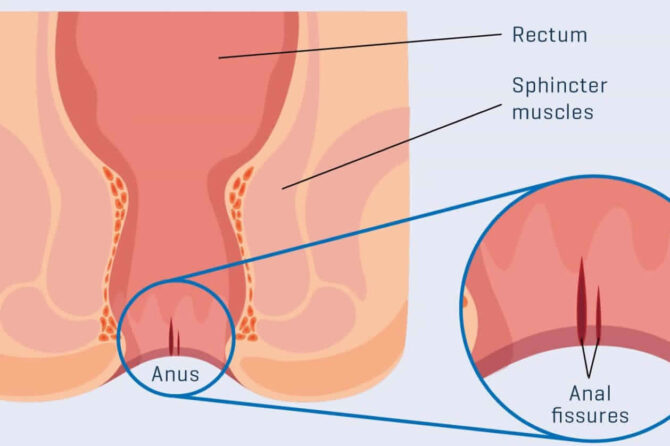
How Does an Anal Fissure Occur?
How Does an Anal Fissure Occur?
An anal fissure is a small tear or crack in the lining of the anus. This condition arises due to trauma to the inner surface of the anus. Typically, situations such as hard stools, constipation, or diarrhea pave the way for the development of anal fissures. During the passage of hard stools, the stretching of the anus can cause the mucosa to crack. Additionally, frequent severe straining and excessive force during bowel movements can increase the risk of fissures. Another common cause of anal fissures is high pressure in the anal area. This high pressure can restrict blood flow, prolonging the healing process and leading to chronic fissures. Chronic fissures can deepen if left untreated, causing persistent pain and discomfort. Understanding the formation of anal fissures is a critical step in determining appropriate treatment and prevention strategies.
What Causes Anal Fissures?
The primary causes of anal fissures include constipation, diarrhea, and excessive straining. Constipation leads to the hardening of stools, which in turn causes the anus to stretch. This situation can result in the formation of cracks in the anal region. Diarrhea, on the other hand, causes continuous passage of liquid stools, leading to irritation of the anal mucosa and the formation of fissures. Moreover, habits such as excessive straining and prolonged sitting can contribute to the development of anal fissures. Sometimes, inflammatory diseases and high pressure in the anal area can also be underlying factors. These conditions can make fissures harder to heal and prolong the treatment process.
Treatment Methods for Anal Fissures
The treatment of anal fissures typically involves various methods aimed at relieving symptoms and speeding up the healing process. The first step often includes dietary changes and the consumption of fiber-rich foods. These changes can help soften stools and regulate bowel movements. Additionally, stool softeners and topical creams are commonly used in the treatment process. These creams can alleviate pain around the anus and support the healing process. If these methods prove ineffective, specialists may recommend surgical intervention. Surgical options may include procedures to correct the fissures or relax the muscles in the anal area. Treatment methods vary depending on the severity of the fissure and the overall health condition of the patient.
Tips and Recommendations for Preventing Anal Fissures
Preventing anal fissures is possible through lifestyle changes and reviewing certain habits. First, adequate fiber intake encourages soft stools and regular bowel movements. Fiber-rich foods can reduce the risk of constipation, thereby preventing the formation of fissures. Additionally, drinking plenty of water and engaging in regular exercise can support the health of the digestive system. It is essential to be cautious of bowel problems like constipation and diarrhea and keep them under control. Maintaining good hygiene in the anal area and avoiding harsh soaps can reduce irritation and the formation of sores. Specialists can offer personalized advice to reduce the risk of fissures by recommending stool softeners and other treatment methods when necessary.
Leave a reply

Leave a reply